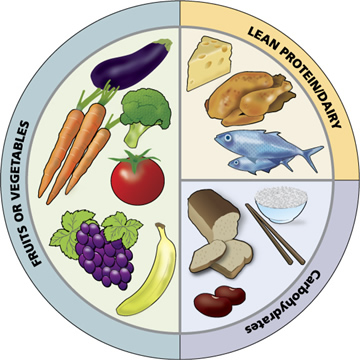Bone marrow is present inside specific bones in the human body, such as those in the legs and hips. It includes stem cells, which aids in the formation of all blood cells, like:
- red blood cells (transport oxygen to all other cells in the body and remove carbon dioxide),
- white blood cells (which fight infection-causing organisms)
- and platelets (cell fragments that form blood clots to stop bleeding).
The body generally generates these cells in a controlled manner, producing only the required amount for proper bodily function. Cells, however, may become aberrant, and when the body creates too many of one type of cell, it can lead to cancer.
Blood cancer is a wider term that refers to several malignancies. Blood cancer begins in blood cells and spreads throughout the body via the circulation of the lymphatic system. Blood cancers are categorised according to the kind of cell that has become malignant, the location of cancer and how quickly the disease develops. Leukaemia, lymphoma, and myeloma are the three most prevalent forms of blood cancer.
Leukaemia develops in the bone marrow, involves the white blood cells, and then into the circulation. White blood cells are effective infection fighters; they typically develop and regularly divide as per the body’s needs. However, in patients with leukaemia, the bone marrow generates an abnormally large number of white blood cells. The excess white blood cells are ineffective.
Causes of leukaemia:
In general, leukaemia develops when the DNA of some blood cells undergo alterations (mutations). The DNA of a cell includes instructions that guide the cell on what to do next. Usually, the DNA instructs the cell to develop at a specific rate and die at a specific period. The mutations in leukaemia signal the blood cells to keep growing and dividing.
When this happens, the creation of blood cells spirals out of control. With time, these mutated cells in the bone marrow might overwhelm healthy red blood cells and platelets, resulting in fewer healthy white blood cells, red blood cells, and platelets, resulting in leukaemia symptoms.
Symptoms of leukaemia:
The symptoms of leukaemia differ based on different kinds of leukaemia. The following are some of the most common signs and symptoms of leukaemia:
- Chills or fever
- Fatigue and weakness that persists
- Infections that reoccur or are severe
- Losing weight without making an effort
- Lymph node swelling, liver or spleen enlargement
- Easy bruising or bleeding
- Repeated nosebleeds
- Small red patches on your skin
- Sweating excessively, especially at night Bone discomfort or soreness
- Headaches
- Vomiting
- Seizures
- Breathing difficulty
Classification of leukaemia:
- Speed of leukaemia progression:
- Acute leukaemia:
The aberrant blood cells in acute leukaemia are immature (blasts), unable to carry out their regular tasks and multiply rapidly, causing the illness to deteriorate fast. Acute leukaemia needs immediate and vigorous therapy.
- Chronic leukaemia:
Chronic leukaemia has various types. Some generate excess cells, while some produce too few cells. Chronic leukaemia contains highly developed blood cells that grow at a slower pace and can function properly over a period of time. Some types of chronic leukaemia have no early signs and might go undetected or untreated for years.
- Type of white blood cells affected:
- Lymphocytic leukaemia:
It affects lymphoid cells (lymphocytes), which constitute lymphoid or lymphatic tissue and are important for the immune system.
- Myelogenous leukaemia:
Myeloid cells are affected by this kind of leukaemia. Red blood cells, white blood cells, and platelet-producing cells are all manufactured by myeloid cells.
Types of leukaemia:
The following are the most common forms of leukaemia:
- Acute lymphocytic leukaemia (ALL):
ALL is the most prevalent form of leukaemia in children. ALL might affect adults as well.
- Acute myelogenous leukaemia (AML):
AML is a form of leukaemia that is frequent; It affects both children and adults. It is the most prevalent form of acute leukaemia in adults.
- Chronic lymphocytic leukaemia (CLL):
The most prevalent chronic adult leukaemia, CLL, can make one feel well for years without therapy.
- Chronic myelogenous leukaemia (CML):
CML is a kind of leukemia that mostly affects adults. An individual with CML may have little or no symptoms for months or years before experiencing a stage where the leukemic cells increase more quickly.
Diagnosis of leukaemia:
The following tests are used to look for symptoms of leukaemia:
- Blood tests:
A complete blood count (CBC) examines the quantity and maturity of several kinds of blood cells. A blood smear searches for abnormal or immature cells.
- Bone marrow biopsy:
Marrow is extracted from the pelvic bone to determine the type and severity of leukaemia.
- Spinal tap:
Fluid from the spinal cord is extracted to check the spread of leukaemia.
- Imaging tests:
Laboratories can detect leukaemia with imaging tests such as CT, MRI, and PET scans.
Treatment of leukaemia:
The treatment of leukaemia is determined by its type, spread and health of the patient. The main treatments are:
- Chemotherapy
- Radiation
- Biologic therapy
- Targeted therapy
- Stem cell transplant
- Surgery
Leukaemia and blood cancer:
Blood cancer is a phrase used by individuals with no medical expertise to describe any kind of cancer involving blood cells in any manner. Leukaemia is another term used to describe any type of cancer.
When one type of cell begins circulating in the blood more rapidly than it should, both are descriptive words rather than the terms of particular blood cancer diseases. Thus, they are not the same, but leukaemia is used to describe various blood cancers.
Leukemia cancer doctor in Noida and Delhi, NCR:Make an appointment with Cancer Consult India to determine the top leukaemia cancer doctor in Noida and Delhi, NCR. We would suggest consulting Dr Manish Singhal, a cancer specialist who is among the best leukaemia cancer doctors in Delhi, NCR.



